You're relaxing at home, enjoying the cool breeze of your AC and the soothing chirping of birds, but there's a catch: there's no bird outside. Lo and behold, the chirping noise is coming from your AC. It's an annoying problem, but today we have researched the causes and the proper solution to this problem that you may have.
Air conditioners making chirping noises is a typical indicator of friction between parts due to insufficient lubrication. This can be caused by any of these issues:
- The bearings are dry.
- The fan is rubbing against the coil or blower cage.
- The belt is worn-out and in need of replacement.
Chirping is the least complicated and most manageable air conditioner noise problem to fix. A few drops of oil and parts replacement, Voila! It's as if your unit is brand new. Going further, as you scroll down this page, you'll find out the other types of AC noise and how to fix it.
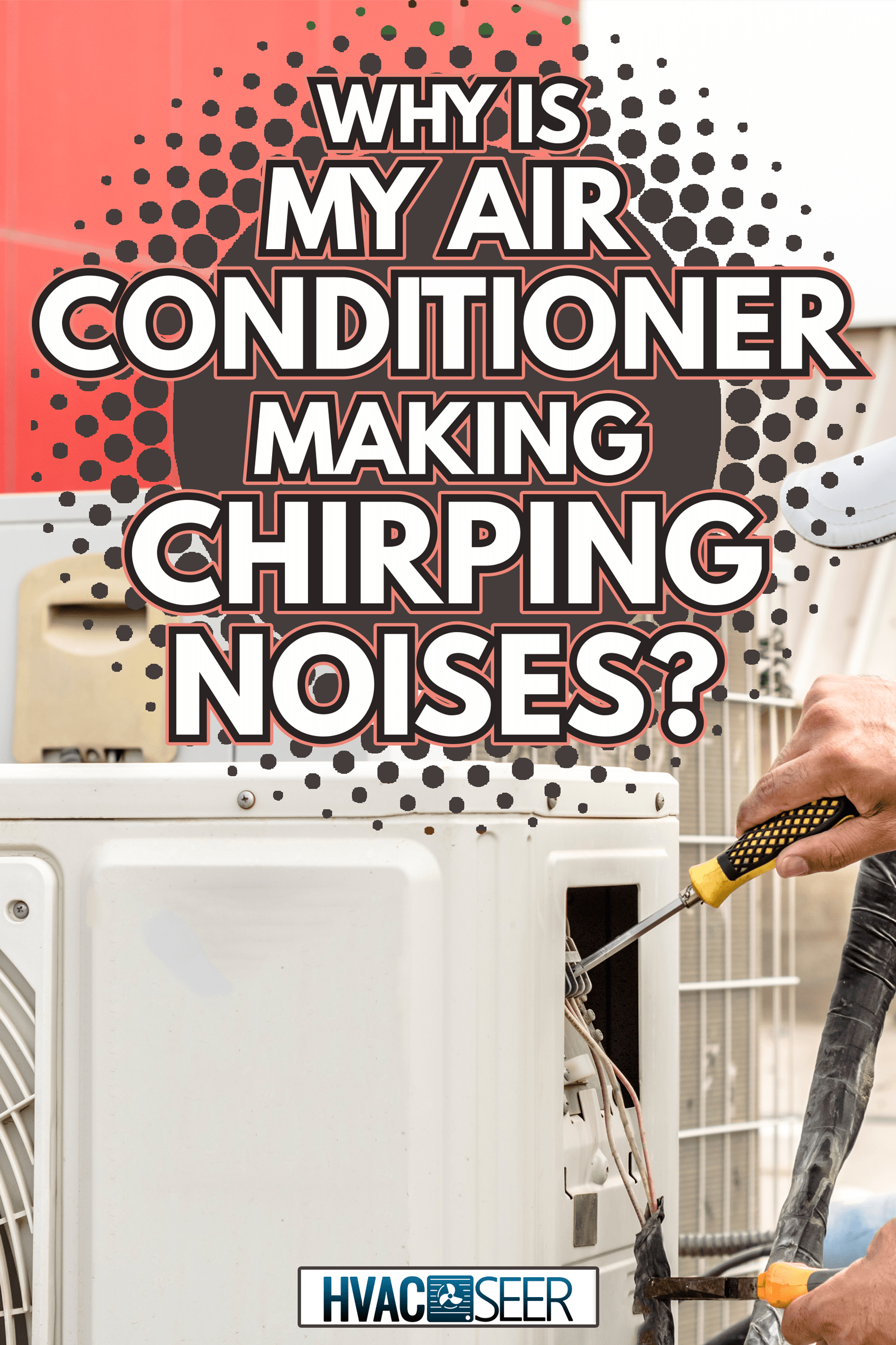
What Are The Common Air Conditioner Noises?
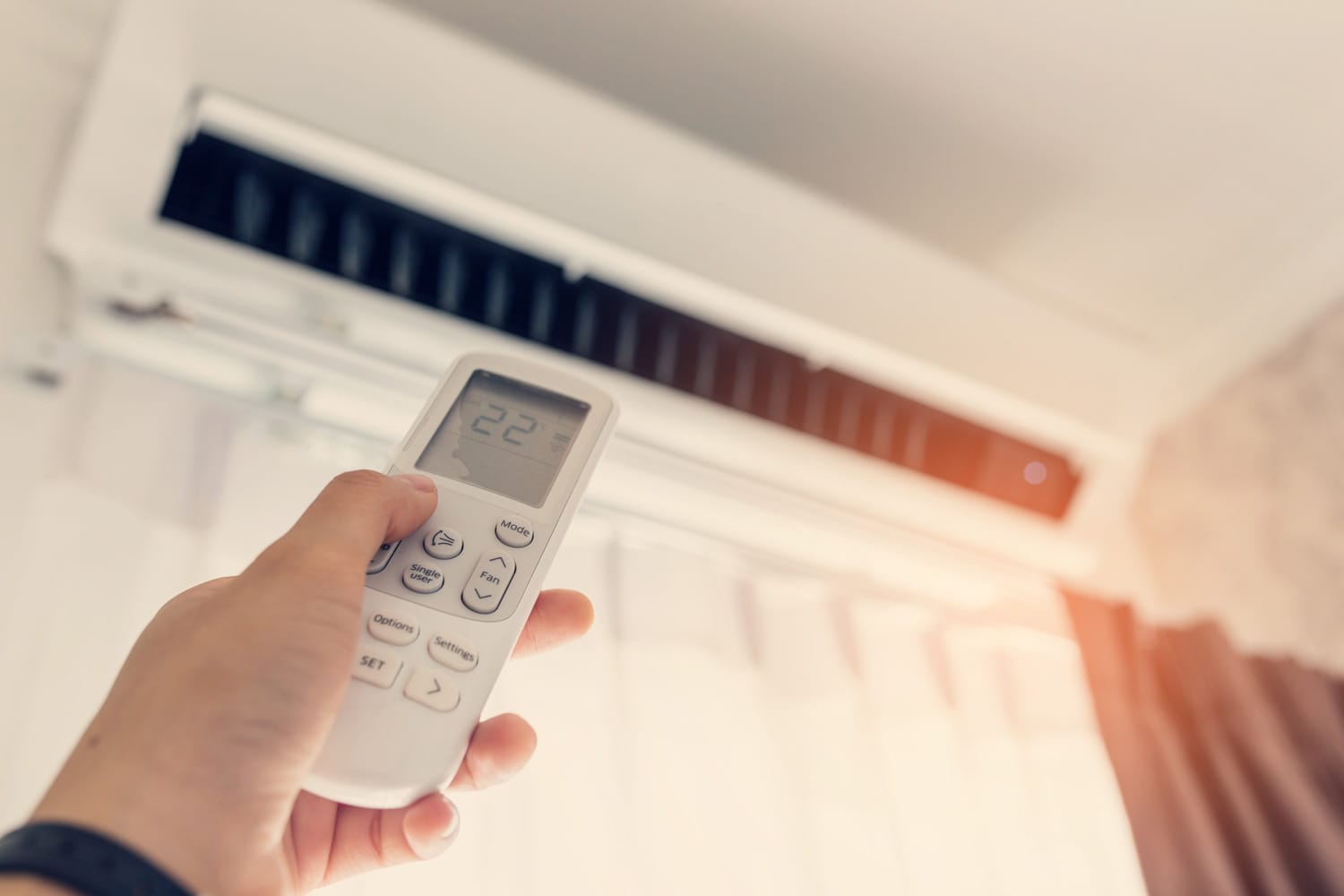
We all need a break from the commotion outside. A simple peace is enough, but how can you achieve this if there's a background noise emanating from your cooling system.
This problem is quite troublesome since ACs are not supposed to make other sounds except for occasional clicks, beeps and soft hums. Noises are usually warning signs for various issues that can be solved by an easy DIY or professional.
- Screeching
- This high-pitched harsh sound is often associated with an issue with your outdoor or indoor unit, maybe even both.
- Hissing
- Similar to a snake's hiss, commonly caused by moderate to severe aid duct leak, malfunctioning expansion valve, or an incompatible air filter.
- Clicking
- A typical sound for air conditioners. If you continuously hear a clicking sound, it may be due to a malfunctioning thermostat.
- Humming
- A disruptive noise due to a defective contactor relay switch.
- Buzzing
- Buzzing usually occurs due to loose or unbalanced fan blades, faulty outdoor fan motor, dirty condenser coils, refrigerant leaks, or copper lines obstruction.
- Banging
- A loud banging noise, commonly caused by a compressor problem.
- Rattling
- Similar to a baby's rattle which you can quickly fix by disassembling the unit and removing loose debris.
- Bubbling
- Usually correlates to a blockage, crack, or hole in your drainage pipe.
- Gurgling
- Gurgling is almost similar to bubbling, however, gurgling noise happens due to a leak in the refrigerant line.
Common Solutions To These Noise Problems
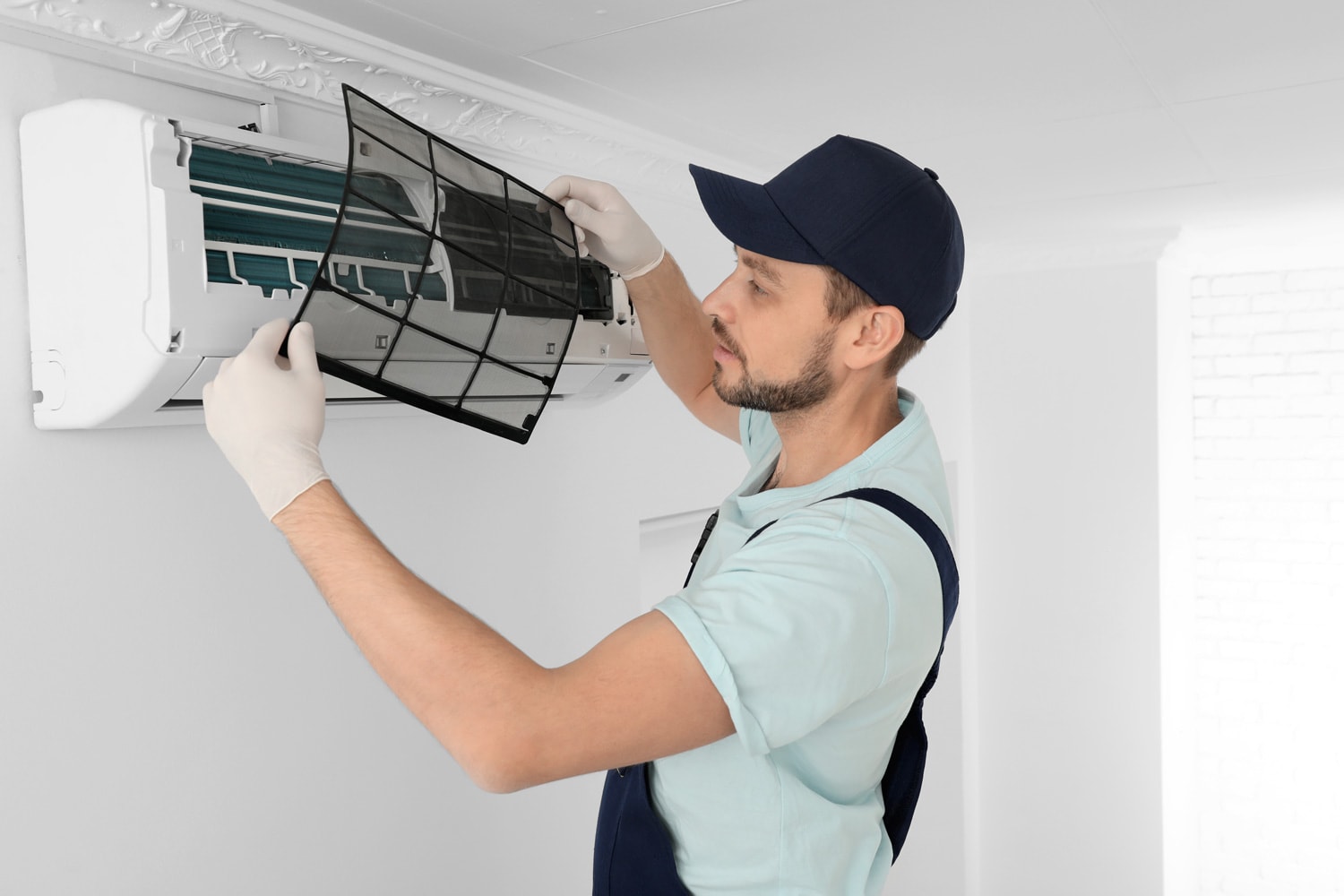
Now that we have talked about some of the noise that your air conditioner makes, let's talk about a brief way of how to solve some of these problems.
Hissing
Due to a possible leak of the refrigerant, we highly recommend immediately scheduling an inspection with a specialist to determine the cause of the hissing sound.
Clicking
You'll need a professional for the thermostat replacement. Its removal and installation are complicated, especially for those with little to no knowledge of this process.
Buzzing
A regular aircon tune-up will end this and other existing but not noticeable problems. Sometimes, loose AC parts may be the reason, hence you would have to hire a reputable HVAC technician.
Banging
Compressor repairs can be costly. Moreover, it does not guarantee 100% efficiency since manufacturers do not design for modification.
You may still try to have this inspected by your technician, but there's no guarantee you will solve the problem.
The expense you'll incur will most likely equal purchasing a new one. So save yourself from the stress and noise and get yourself a new one.
Bubbling
A unique set of tools, skills and training are needed to remove the bubbling sound. Seek the assistance of a professional complete the job correctly and safely.
However, if you feel that you will be able to do it on your own, turn off your system and inspect the drain line manually.
Gurgling
Only an HVAC professional can perform repairs because refrigerant handling requires licensing.
If you fail to address this issue, you run the risk of your air conditioner's evaporator coils freezing over, which restricts performance and can cause the entire system to fail.
Screeching
As mentioned above, screeching occurs due to an outdoor or indoor unit problem, let's take a quick look at what these problems are and what you can do to fix these.
Typical Outdoor Unit Problem
- Faulty fan motor bearings
- Broken compressor
Both issues require part replacement to eliminate the noise and improve system performance. Hence, we highly recommend calling in a certified technician to take a look at your outdoor unit.
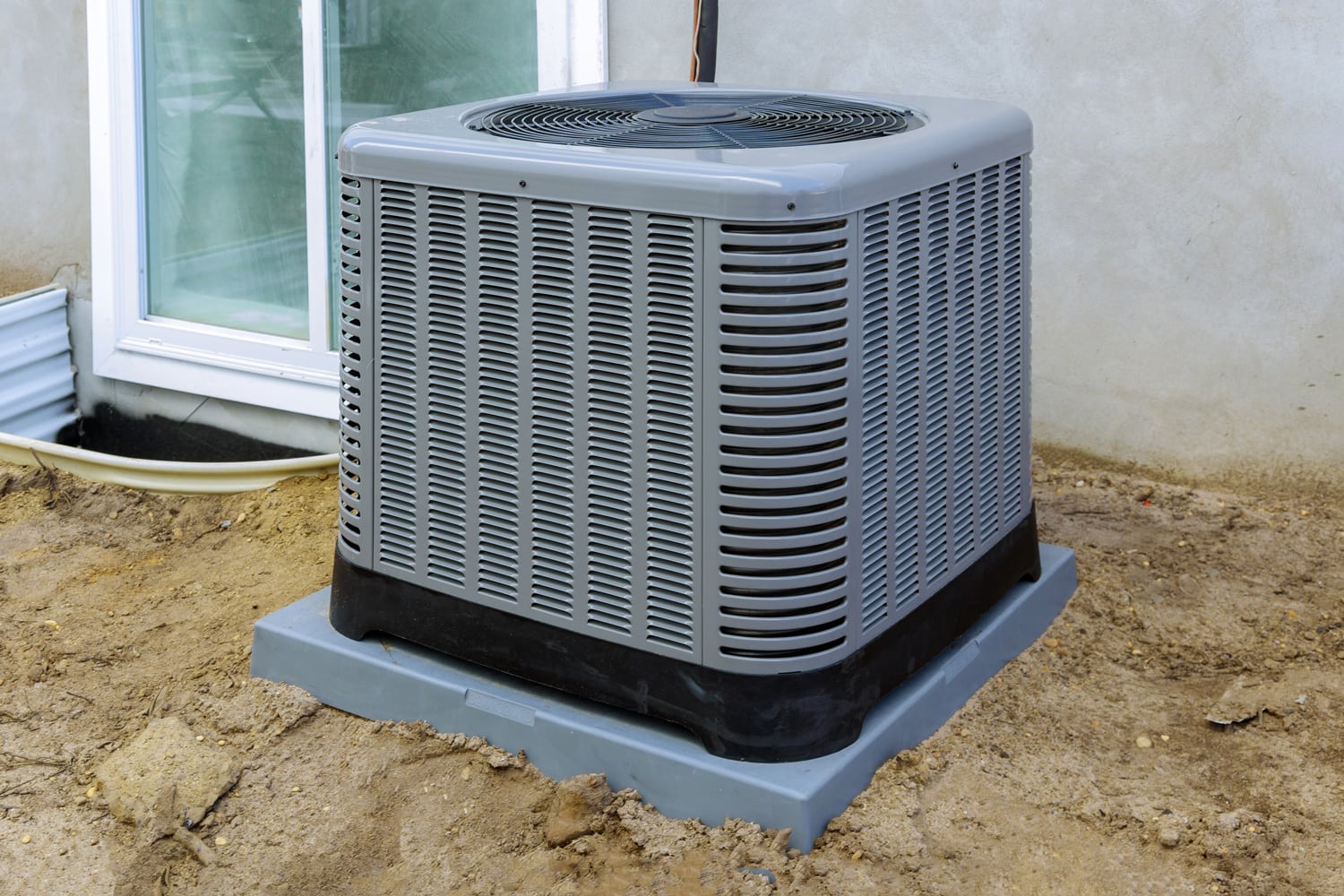
Typical Indoor Unit Problems
- Faulty blower motor bearings
- Worn out or misaligned blower motor belt
- Worn out blower motor
- Malfunctioning blower motor
- Damaged bearings in your fan motor
- A broken motor in the compressor of the condenser system
The first two issues can be fixed with a simple DIY project which we will discuss below.
As for the remaining issues, unless you are well-versed with fan motors, we highly suggest you contact a professional to solve this problem. Fan motors and condenser units are sensitive AC components that require technical expertise to handle appropriately.
How To Fix Faulty Blower Motor Bearings
You can quickly fix a squealing motor with a few drops of lubricant. Here's how to proceed:
- Turn off the indoor unit's source of electricity which in most cases is the circuit breaker.
- Verify disconnection by plugging it and checking if it is operational.
- Remove the access panel to the blower motor chamber to access oil ports caps. This is usually located close to the motor shaft over the bearings. If you can't find the oil ports, it is most likely that the motor is sealed which means you'll be needing a professional to assess and do the repairs for you.
- Add two to three drops of 10-weight non-detergent motor oil in each oil port.
- Replace caps and access panel.
- Restore electrical connection.
- Test out the unit if working properly.
How To Replace Worn Out Blower Motor Belt
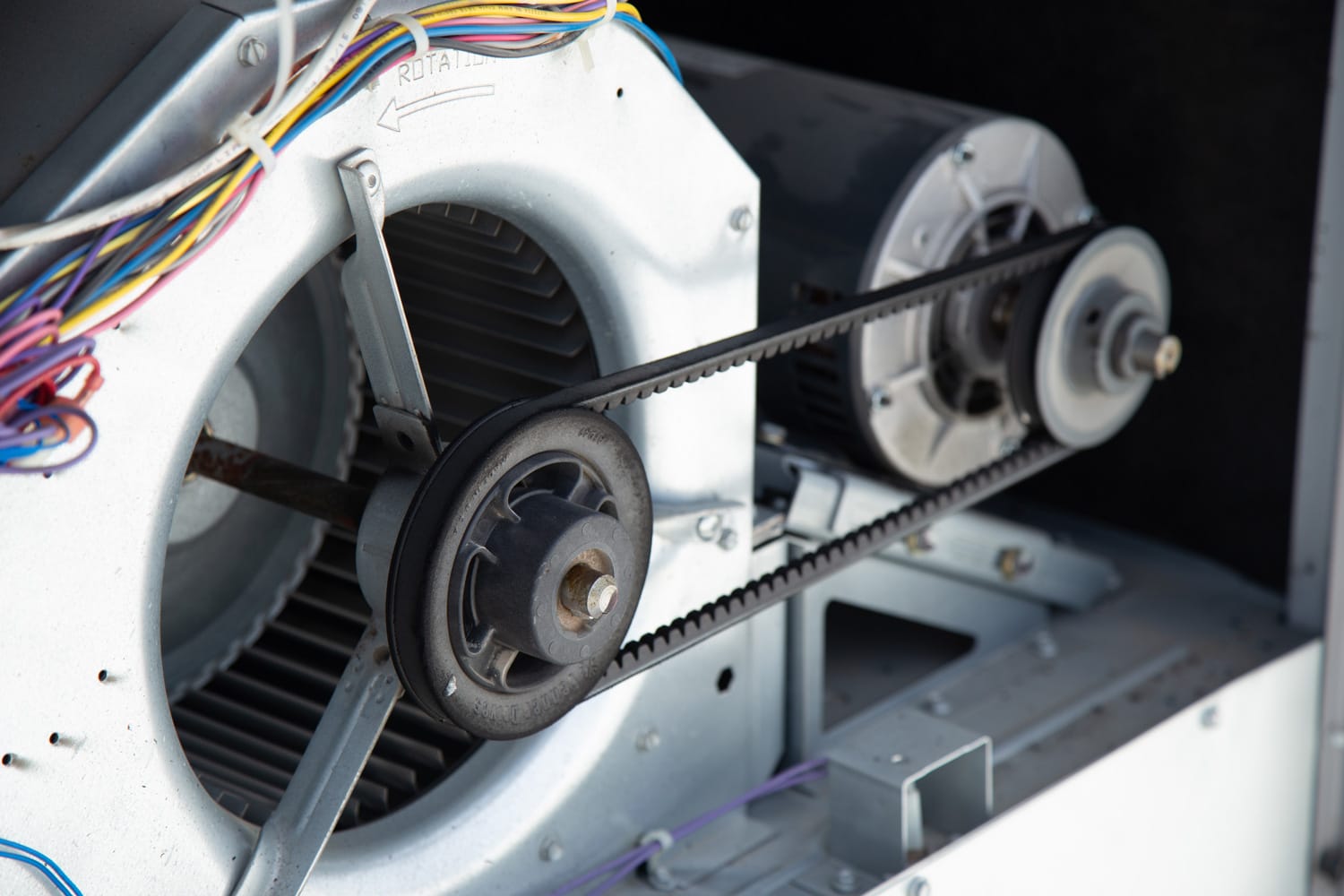
- Turn off the indoor unit's source of electricity, in most cases, it's the circuit breaker.
- Verify disconnection by plugging the aircon and turning it on. If turned on, then you most likely shut off the wrong panel.
- Unwind the mounting bolts inside the blower motor chamber, which can be accessed via removal of the access panel.
- Move the motor slightly towards the blower to loosen the belt.
- Remove the belt and check the size to ensure that the replacement belt is compatible with your AC system.
- Place the new belt over the pulley on the blower then over the pulley on the motor.
- Put the motor back into its original position.
- Tighten the mounting bolts.
- Check the belt's tension by pushing onto it. The belt should bend by half an inch only, any movement other than this requires adjustment. Adjust the mounting bolts until desired tension is achieved
- Reinstall the access panel
- Turn on the circuit breaker then your unit to test the AC blower
How Do I Know If My AC Compressor Is Broken?
Compressor issues are immediately noticeable. The broken compressor will cause one or more of the problems below:
- AC's abnormal noises such as clattering, banging, screeching, and many more
- Difficulty with starting up your unit
- Stops blowing cold air
- Circuit breaker problem- a clear indication that it is hot to the touch
- Diminished Airflow
These issues could lead to further problems if left unchecked by a technician. We highly recommend that you get your system unit in check if you're experiencing one of the problems listed above.
Who Should I Contact For Tune-Ups?
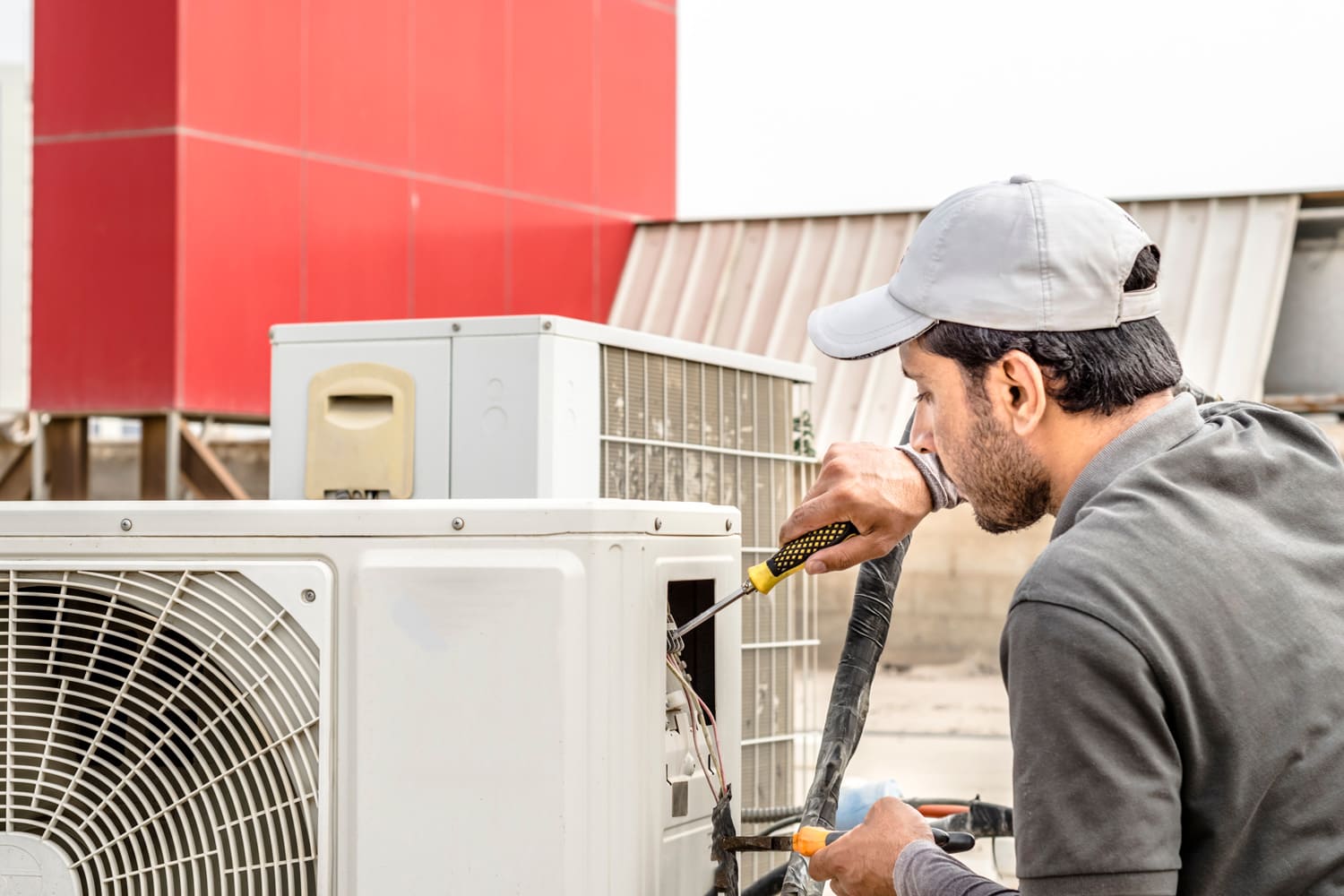
Since most of the problems in this post require a properly licensed technician to handle the fixes, let's take a look at some of the available options we have for you. Here are two recommendations you may want to book an appointment with:
Both companies offer a wide range of services, from prevention to solution, ensuring peak AC performance.
In Closing
A regular tune-up is a fail-safe way to prolong your air conditioner's life span. Although problems are inevitable, especially for old units, you could still save your ACs by hiring a licensed technician to assess the situation and repair it.
Now you know more about the various noises air conditioners can make, including chirping, as well as what they mean and how to address them.
To learn more about air conditioners, check out these articles that may help you with any other issues or questions you have:
What Air Conditioners Work With Coolbot? [And How To Install One]
